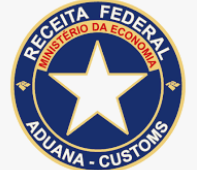Tempo de leitura: 2 minutos
The Venezuelan National Assembly approved legislation establishing “Special Economic Zones” (SEZ) in the Caribbean country. The 35-article bill is the latest effort by the Maduro administration to attract foreign investment to drive economic recovery as the country remains targeted by wide-reaching US sanctions.
Following two parliamentary sessions, the new law was endorsed by the pro-government United Socialist Party (PSUV) legislative super majority, as well as right-wing opposition deputies, on Thursday. Óscar Figuera, the lone deputy from the Venezuelan Communist Party (PCV), was the only lawmaker not to vote in favor of the SEZ Organic Law. Figuera claimed that the project represents a “threat” to Venezuela’s sovereignty by “creating areas under the control of transnational capital.”
The approved text, which Venezuelanalysis has had access to, states that the law aims to regulate the “creation, organization, functioning and management” of SEZs.
Special Economic Zones are defined as geographical areas under exceptional rules and regulations. They can be geared towards a given economic activity, from industry to tourism, while also prioritizing imports, exports or technological development.
The legal instrument stipulates that private investors in these economic enclaves will receive incentives such as legal assurances, a host of tax breaks or exemptions and fast-tracked bureaucratic procedures.
SEZs will be created via presidential decree. The newly approved legislation will likewise lead to the creation of a superintendency that answers to the country’s executive. It will be responsible for monitoring SEZ activity and proposing new ones if certain criteria are deemed to be met. The SEZ superintendency will work alongside the International Center for Productive Investment, which is responsible for scouting investors and drawing up investment plans.
There are eight currently existing SEZs created in 2014 under different legislation that failed to develop. The Maduro government pledged to reevaluate those cases, while a number of governors and mayors have lobbied for SEZs in their jurisdictions.
The project has sparked fierce debate amidst Chavista ranks. Critics have voiced concerns that the plan clashes with the Constitution while pointing to cases where similar experiments amounted to “sweatshops.”
PSUV deputy Oliver Rivas told Venezuelanalysis that the SEZs should not be seen as the “ultimate step” towards socialism but rather as a “resistance strategy” in the face of US-promoted economic aggression. “Beyond dogmatically rejecting strategies, we should look at examples like China and Vietnam, the challenges, limits and counterweights they had to impose when they partially opened their markets to foreign capital,” he explained, adding that China was able to capitalize on special economic zones to boost public policies.






Os comentários foram encerrados, mas trackbacks e pingbacks estão abertos.